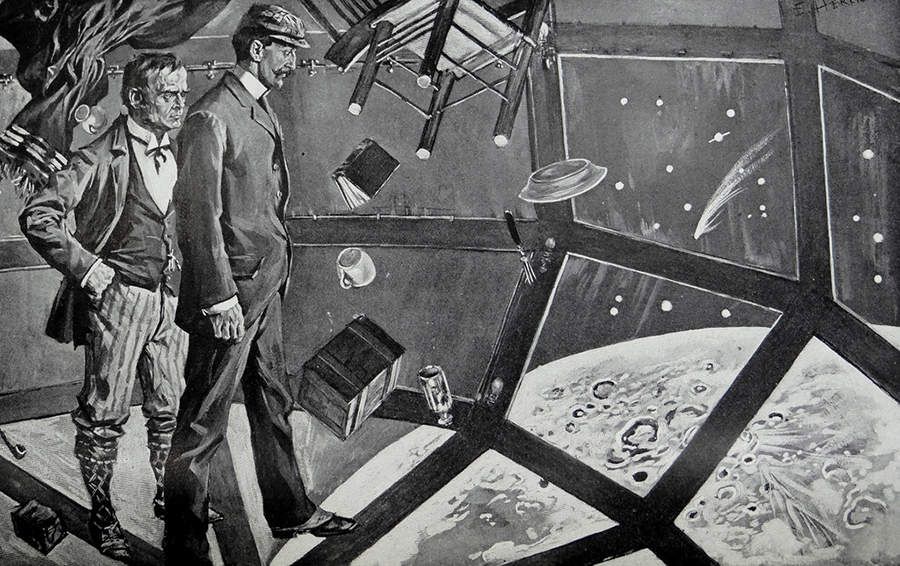
Verne wants to write big cannon porn more than actually get where he’s going. The guy wanted to get to the moon to see what was there. For Wells cavorite was literally a launching point for his story. When you bring on the guy in the white coat and start explaining cavorite to me, your story becomes about cavorite. What a laff fest that was.) I don’t care if cavorite is real. (At some point I should blog about pitching to Gene Roddenberry when ST:TNG was in preproduction. When Star Trek becomes more about the Enterprise than the people in it, I’m gone. I care about the characters and the impact of the submarine and the gunpowder on the characters’ world. I’ll say flat out that I fall on the side of Wells.

Wells find his cavorite? Let him show it to me!” (Cavorite being a gravity-proof substance invented by Wells to effect travel in First Men in the Moon.) Verne was in no way a fantasist, and once said about Wells, “I sent my characters to the moon with gunpowder, a thing one may see every day. They weren’t just competitors, they fundamentally disagreed with each other’s approach. It’s not often discussed, but also not surprising, that a rivalry existed between the two men. He said flat out he had no interest in predicting the future he was writing about the present, in the Heinlein sense of “If this goes on….” Verne was often criticized for being more interested in his engineering than in his characters. Wells was often taken to task for not being as plausible as Verne, for not being a predictor. Wells wanted to extrapolate what impacts such developments might have on their developers. Verne wanted to extrapolate what future technologies could emege from present ones. His bent was more sociological than that of Verne, who considered himself more of a predictor.

He once wrote that he liked to “put an impossible thing into the world” and then step back and see what happens. Nowadays we’d call Verne a “hard SF writer,” meaning that he’s more focused on the technology and plausibility of his stories. Verne (1828 – 1905) wrote the “lost world” and undersea-travel books that cast a shadow over any that might follow.īoth men were often compared to one another, and it’s clear that neither was crazy about it. Wells (1866 – 1946) wrote the time-travel and alien-invasion novels by which all subsequent would be measured.

Lunar exploration, extreme terrestrial exploration, genetic experimentation and controlled evolution, mechanized global warfare and weapons of mass destruction, and even the “mad scientist” are just a few of the contributions they have in common. Both created landmark works that staked out iconic images and themes. Both enjoyed enormous popularity in their time. Both men were seminal figures in the development of modern science fiction. I think science fiction (and to some extent fantasy) writers tend to fall into one of two camps: Wellsians or Vernians.


 0 kommentar(er)
0 kommentar(er)
